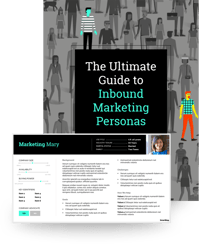
5 Beginner Steps for Implementing Lead Scoring
December 30, 2014
By Dolly Howard

Lead scoring is a tool used to help marketing communicate to sales which MQLs are most likely hot, and which leads can be given a bit more time. It is extremely useful when done correctly. Marketing automation tools like HubSpot help marketers integrate this system with their CRM, offering custom lead scoring capabilities so that you and your sales team set the parameters that make the most sense for your company. Below we will discuss how lead scoring works and what steps you need to take to get started.
How Lead Scoring Works
Leading scoring systems in the simplest terms rank leads according the behavior, action or characteristics logged in contacts’ properties within the leads database. Those who have the most qualified attributes get the highest score.
Sales and marketing teams work together to decide how much an action, characteristic, or piece of content are worth. The lead scoring system adds up those values for each lead, based on what is recorded in the database, and calculates the overall lead scores based on the findings. The calculation can also include negative actions such as unsubscribing from email. The sales and marketing teams also decide together if any additional weighting is necessary for particular attributes such as stage of the buying cycle. The weighting adds an additional fine-tuning to the lead score but isn’t necessary all of the time.
Attributes commonly scored are:
- Content downloaded (individual and total)
-
Number of pages viewed on website
-
Job Title
-
Role at Company
-
Frequency of visits
-
Key pages visited (such a Pricing)
-
Unsubscribes
-
Comments on blog
-
Timeline to purchase
-
Persona (can be positive or negative)
Taking the First Steps Toward Scoring Leads
Step 1: Meet with the Sales Team
Similar to your sales process discovery meeting, you should setup a meeting with sales to figure out what key attributes should be scored to help them qualify leads better. Remember to ask how personas play into their scoring. Who does the sales team like to work with best?
Step 2: Develop a Lead Scoring Matrix or Scorecard
A scoring matrix should be a table that plots out what you’re scoring, the value of the each criteria, and the number of points it takes to end up in a stage of the buyer’s journey or sales funnel. For example is a lead with 200 points marketing qualified? 300 points? What actions do they have to take to make sure they fit the qualification specifics given by the sales team. This process will take you the longest to complete.
Step 3: Double Check Your Logic
The key to great lead scoring is ensuring your logic works. Is the “demo” scored too high making everyone ultra-qualified? If it is, refine, refine, refine. The key, again, isn’t to make every demo request the most qualified. It is to help sales decide which demo request they should call first.
Step 4: Add to Your Marketing Tool and Test
In HubSpot, setting up lead scoring is easy. You should take your logic, setup the lead scoring tool and then run it for a couple of weeks. Is it working? Does it sync to your CRM system? Is the sales team actually using it? If the answers to any of the questions above is “No” you should reevaluate why it’s not working and in some cases if lead scoring is actually that useful to your team.
Step 5: Refine Your Efforts
Setup a meeting every quarter to discuss any refinement that needs to happen in the lead scoring process. Is it working? Is it not? Why or why not? Is there anything new that needs to be scored? You get the idea. Take what you learn from this meeting, set it up again in the tool and test to make sure it works. Continue this process each quarter.
By implementing lead scoring into strategy you can ensure that your sales team gets the hottest marketing qualified leads. This not only keeps both teams happy; it also allows you to show proof that your inbound marketing efforts are worthwhile.

About the author
Dolly Howard was formerly Director of Marketing for SmartBug Media. Previously she worked as a senior marketing consultant leading SmartBug Media clients in strategy for lead conversion improvement and total marketing ROI. As a past HubSpot employee, Dolly is excited to share her knowledge and help enterprise companies grow their business. Read more articles by Dolly Howard.









